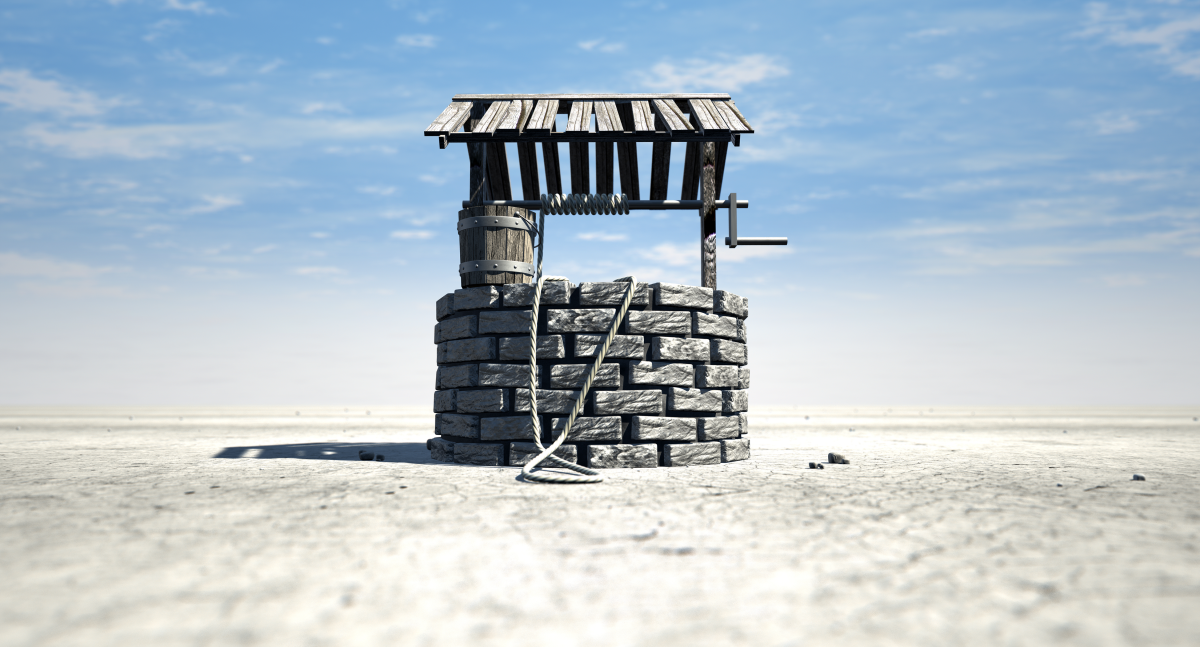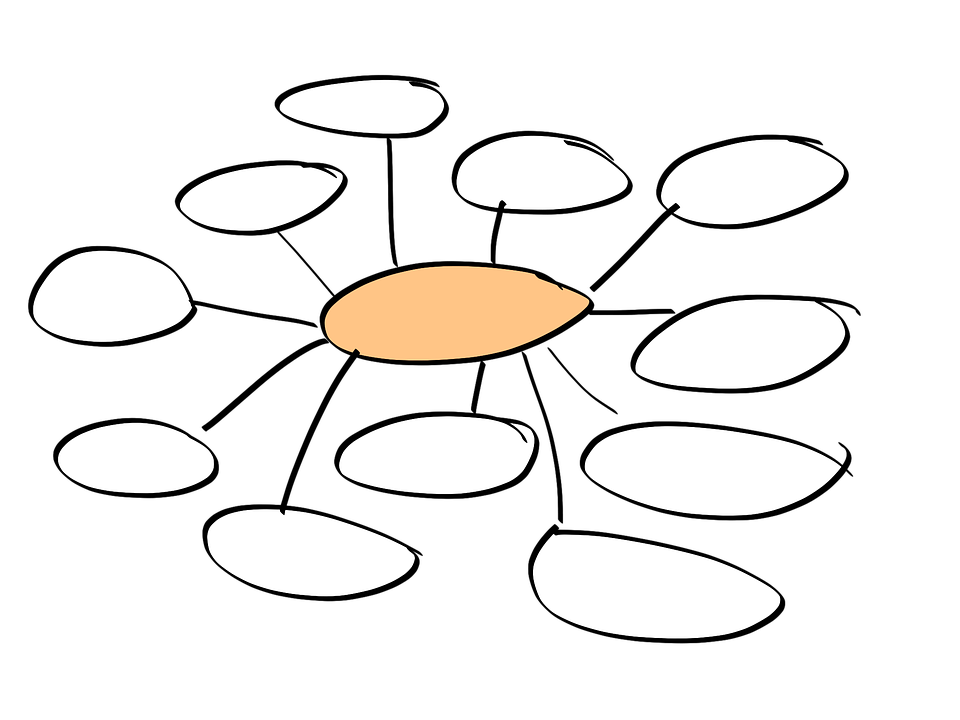Liberty, Fraternity and Freedom: Exploring Social and Political Philosophy
The Principles of Governance
MINDS ON
“
Our politics are our deepest form of expression: they mirror our past experiences and reflect our dreams and aspirations for the future.
~ Paul Wellstone, American academic and politician.
Imagine that you live in a small village. At its centre is a well, the only source of fresh drinking water for the entire community.

As this is a limited, but necessary resource for all, rules have been established so that each person in the village is allotted “just enough water to meet her or his needs.” And all goes well, for many years, until one summer the weather is unusually hot, and the water is not as plentiful.
Indeed, at times, it seems like the well is in danger of going dry!
In a state of alarm, the community comes together to try and determine what to do.
It is then that it is revealed that some members have not been adhering to the established rules: they have been taking more water than they were allotted, sneaking water in the dead of the night, and secretly hoarding it in their homes.
A heated argument ensues!
- “I work outside all day, unlike some of you who don’t engage in manual labour, so I need more water on these hot days!”
- “There has been no rain in weeks, and my garden is in danger of drying up. How will I feed my family if my garden dies? Think of the children!”
- “My business is thriving and requires more fresh water to expand our production. Should I impede its progress over a few extra buckets of water? If my business fails, a lot of people will be without jobs and our economy will suffer!”
- “I’m a very important member of this community, and have contributed greatly to the care and maintenance of this well through charitable donations. No one else here has the ability to look after this well - it wouldn’t even be standing if it were not for my efforts. Surely I should be allowed some special privileges?”
Before the arguing erupts into fistfights, you and a small group of level-headed community members ask for calm, and tell the village that through reasoning, you can come to a solution that will meet everyone’s needs and restore harmony.
 Water Dilemma
Water Dilemma
What do you propose the village do to solve this dilemma?
Come up with three to five rules on how the water will be shared in the community.
Questions to consider are as follows:
- How do you determine “need?”
- How do you motivate everyone in the community to abide by the rules?
- What will you do with those who refuse to follow the rules?
- Who will enforce the rules?
ACTION
The Tragedy of the Commons
In 1833, the English economist William Forster Lloyd published a pamphlet which included a hypothetical example of over-using a common resource.
Traditionally a “common” was a shared parcel of land, on which everyone in a community was entitled to let their cows graze. Commons were the custom in many villages in England at that time.
Lloyd’s concern was that if a herder put more than his allotted number of cows on the common, overgrazing could result. While the individual herder would benefit, the community on the whole would suffer. If all herders made the same decision - and only thought of their own needs and economic gain - then the common could be depleted, and even destroyed.
In 1968, ecologist Garrett Hardin revisited Lloyd’s original idea and adapted the term “common” to represent any and all shared resources - from water to air and even the family bathroom - any resource where access was potentially unregulated.
Like Lloyd, Hardin’s conclusion was that eventually resources would be depleted; Hardin even went further to point out that, if we rely on an individual’s conscience and sense of altruism as a means of safeguarding the common, then we are deluding ourselves.
In other words, in the absence of regulation, many humans are selfish and act in their own self-interests; they rationalize their needs over others.
The Necessity of Governance
Staying alive is an imperative for any animal - it makes perfect sense that we all seek self-preservation. However, once we converge into groups, that basic human behaviour can be problematic, and needs to be regulated.
If we go back to the world’s earliest civilization - Mesopotamia - you will note that even then, people realized that having so many individuals collectively living in one place, necessitated the formation of the first law codes. Drawn from legal precedence and decisions made by kings, the Code of Hammurabi (created c. 1780 B.C.E.), is one of the earliest examples of a code of law used to govern a society.
The Role of Government
In essence, the role of government is to enforce rules that promote harmony within a society.
In essence.
However, as you can imagine, deciding how we reach this harmony in our society is no easy task.
Consider these questions, for example:
- How do we decide who makes the rules?
- Does everyone have to abide by them?
- What do we do to those who do break the rules?
- Who enforces those rules?
- How far can the government go to enforce those rules?
- What happens if an individual or a group is unjustly accused of breaking those rules?
Refer to rules devised by the class in the Minds On section regarding the fair use of the well. Did anyone question why rules were needed? Or was it just accepted that for the community to run smoothly, rules had to be put in place?
The Responsibility of the State and the Individual
In political philosophy, a social contract is an agreement between the citizens and the sovereign power or state. (definition:A nation or territory considered as an organized political community under one government.) Through the social contract, each party agrees upon its respective rights and responsibilities towards the other in order to form the society in which they live. There is no actual piece of paper, no physical document that outlines what these rights and responsibilities are - although there are manifestations of something akin to it, such as the Charter of Rights established in 1982, or the Universal Declaration of Human Rights adopted by the United Nations. Citizens are ‘born’ into the agreement by virtue of existing within a society.
To get a better idea about the social contract that you just ‘seem’ to be a part of - and why we generally, complacently, follow it, please watch the following video about Thomas Hobbes and Contractarianism from Crash Course:
The ‘Best’ Political Order
So, we have an agreement with a ‘state,’ we promise to abide by the rules, and, in return, the state will look after us. However, what is this ‘state’ with which we are in agreement? How do we know that it has our best interests in mind?
Political philosophy explores this concept of the ideal or ‘best’ state. In Activity 2, we will learn about the social contract in greater depth, but for now, so you can understand the foundations for some of the political ideologies we are about to explore, let’s briefly look at a few of them.
Plato’s Republic (380 BCE)
For Plato, making decisions about the right political order is, along with the choice between peace and war, the most important choice one can make in politics. Plato also felt that most of the populace was ill-equipped to make such important decisions.
So Plato proposed that the ideal society - a utopian city that he called Kallipolis - would be divided into hierarchies based on a class system in accordance with his Theory of Forms. The wisest of them all - the only one whose mind was trained to grasp the truth of the Forms, was the gold class - the philosopher king. Beneath him, would be the silver class - the soldiers or guardians who defended the state. Everyone below that class - the workers, labourers, farmers - whose minds were not educated enough to know the truth, were the bronze class.
If this is already sounding like the setting from the last dystopian novel you read, your comparison would not be far off.
Aristotle’s Politics
Aristotle was concerned about which type of government would best serve the common good. Looking at the various options, he believed that democracy had the most advantages. Like Plato, he was concerned that the average person was neither educated, nor intelligent enough to make rational decisions regarding governance. This excluded women, children, and those that were enslaved because Aristotle felt they had no place in politics.
Thomas Aquinas’ On Princely Government
Aquinas focused on the idea of one ruler, whose supreme authority was a God-given right. According to Aquinas, a ruler who followed the natural hierarchy of order would be doing God’s will. Yes, certainly, rule by one could be problematic, but only if that person was unjust. Aquinas believed though that most people were inherently good, as God had intended. And good, as he pointed out, was stronger than evil.
Niccolò Machiavelli’s The Prince (1513)
Machiavelli defined a ‘successful ruler’ as one who puts his morality aside in favour of achieving political gain. Whatever a ruler must do to gain power and hold onto power - even if it means breaking moral codes, is warranted. The Prince is often recognized as one of the first works of modern political philosophy, because it is less concerned with an abstract ideal than it is with effective policy and governance.
John Locke’s Two Treatises on Government (1690)
The most central concept in Locke's political philosophy is his theory of natural law and natural rights. Locke believed that all humans were by nature, free and equal. In Locke’s version of the social contract, the state exists only to promote and protect the rights of the individual - without civil authority, he argued, the ‘rule of might’ - where a person could forcibly deprive another of her or his possessions or freedom - would allow injustices. Organizing states was one way for people to ensure protection for all.
However, if the state failed to keep up its side of the contract, the public had the right - indeed, the obligation - to remove the government. In other words, your obligation to the state was to abide by the laws and respect the rights of others - if you did not abide, the state would punish you. At the same time, if the state did not live up to its obligation to protect your rights and freedoms, you would be justified in rebelling against such a government, and replacing it with a new one that would better live up to its obligations. In fact, Locke argued that citizens were not only justified in opposing a bad government, they were morally obligated to oppose and oust it.
Jean-Jacques Rousseau’s On the Social Contract (1762)
Rousseau envisioned a new social contract, one in which the rights of society as a whole, rather than those of the individual, are protected. His idea was based on the concept of a ‘general will,’ the protection of the majority. Decisions would be made that would benefit the masses, even if those decisions meant harming a small fraction of society. And the the rights of the individual? They were not significant. And if anyone opposed the general will? They were to be regarded as anti-social and subject to punishment.
Taiaiake Alfred on Indigenous Self Governance
Rejecting all forms of government that were imposed by colonialism, even the ones that are proposed as part of reconciliation, Kahnawake author and educator, Taiaiake Alfred calls for a return to traditional forms of governance that draw from the community and its spiritual roots. Governance is organically drawn from the community through a process of discussion, mentorship, and passing down of knowledge, not simply from elders, but also from those whom the community feels are most knowledgeable in specific areas and are held in high esteem. Alfred describes strong Indigenous communities through a variety of traits including shared culture, group maintenance, and participatory and consensus-based governance.
Points to Ponder
As we delve further into this overview, consider how some of the philosophers’ theories regarding the relationship between the individual and the state reflect current political practices in our world.
In addition, consider whether any of these theories strike you as the ‘ideal’ society. If you had to choose, which philosophers’ theories seem to propose the best contract for both the state and the individual?
MajorPoliticalIdeologies
Examining Political Styles
In conjunction with political ideologies, governments and political leaders use a variety of political styles to further the interests of the state. While there is some debate as to whether they are distinct ideologies in and of themselves (since they are not as well codified or philosophically grounded as the five examples of ideologies we just examined), these political styles have shaped much of world history and governments since the twentieth century. For example, a government can follow a particular ideology, and be in a particular style, such as Liberal Nationalism.
ExaminingPoliticalStyles
 Summarize and Assess: The Principles of Government
Summarize and Assess: The Principles of Government
Now that you have been introduced, or in the case of those who have taken Gr. 10 Civics - reintroduced - to some of the key principals of government that we will investigate in this unit, it is time to summarize your learning.
Your Task:

To assist in synthesizing the information presented in this activity, you will create a diagram - a mindmap, flowchart, or infographic - that demonstrates your understanding of the aspects that define, differentiate, and connect different political ideologies and political styles to each other. Follow the steps below to complete the task.
Step 1: Learn
Choose three political ideologies and four political styles from the lists below. These will form the ‘backbone’ or nodules to your diagram.
|
Political Ideologies (Choose three) |
Political Styles (Choose four) |
|---|---|
|
|
Step 2: Research
For this task, you are required to look for the following information:
- What are the pros and cons for each ideology and style? Provide three to five factors or reasons for each advantage/disadvantage for each term.
- Which philosophers, thinkers, and/or historical figures are most associated with each particular ideology or style? Provide at least two for each and clarify how they are connected.
- Provide one real world example of each ideology and style.
- Draw parallels between similar and dissimilar ideologies and styles. For example, when speaking of Socialism, what political style is often connected with it? When speaking of Liberalism, which ideology is in contrast, or in direct conflict with it? Provide at least one example for each term.
- Summarize your research by presenting your assessment of the ideologies and political styles you researched. In a brief paragraph, explain which principal of government is, in your opinion, the best possible form to govern a society, given human nature and the purpose of the state. Make direct reference to the material and examples you have presented in your diagram.
Remember to archive all of your resources as you are required to provide them in APA format with your finished diagram.
Step 3: Create
Create your mindmap, flowchart, or infographic. You will likely want to use digital applications such as Mindomo or Prezi, but other options may also be available.
Remember to cite the sources you used in APA format.
Your diagram may include an image or visual for each term, but this is not required. Ensure that you define the connections between the ideologies and political styles visually, whether you achieve this through colour, theme, or connecting lines between terms.
CONSOLIDATION
The Most Perfect Society
As you may have gathered from this activity, there are a variety of opinions as to what constructs would be best to put in place to achieve the perfect society. From the beginning of civilization in Mesopotamia, we have sought a way to address some of the more problematic characteristics of human nature - so that individuals can achieve some form of harmony and cooperation when living together.

Is that aim achievable?
Is there a way for us to reach and maintain a perfect society?
 Brainstorm!
Brainstorm!
Quickly respond to the following questions by making notes in your Philosopher’s Notebook. Go with your initial reaction - we will explore these questions more thoroughly later in the unit.
- What are the characteristics of a perfect society - what should it look like, sound like, feel like?
- What factors need to be in place? For example, what rules need to exist? Or should they exist?
- What forms of government would exist (or not exist)?
- What should the purpose of the state be?
- Following that, how much influence should the state have on the individual in a perfect society?
- What does the individual owe to the state in order to live within this perfection?
- Languages? Money? Religion? Individual cultures? Would these exist?
In other words - what would a utopia - the ‘perfect society’ - consist of?
 Philosopher’s Notebook
Philosopher’s Notebook
In your Philosopher’s Notebook, take a moment to reflect on the diagram you made for this activity, your assessment of the forms of government, and this query about the possibility of a ‘perfect society.’
Reflect on this and make an entry in your Notebook. Don’t forget to also archive a copy of your diagram in your Notebook. You will refer to these early entries at the end of this unit.
While you may not have all the answers now, every entry gets you closer to understanding the foundation to your philosophical worldview!